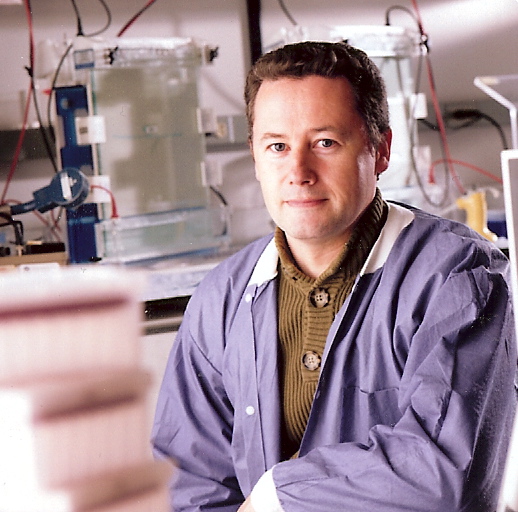Our Science – Marchand Website
Christophe Marchand, Ph.D.
 |
|
|||||||||||||||||||||
Biography
Dr. Marchand obtained his PhD in Molecular Pharmacology in 1997 from the University of Paris, Pierre et Marie Curie, France in the area of gene therapy via DNA triple helix formation. In 1998, he joined the Laboratory of Molecular Pharmacology, CCR, NCI as a Visiting Fellow where he was appointed Staff Scientist in 2006. In 2007, Dr. Marchand received the NCI Director's Intramural Innovation Award for the development of a novel high-throughput screening assay for the discovery of human tyrosyl DNA phosphodiesterase I (Tdp1) inhibitors. Dr. Marchand is a steering committee member of the Center of Excellence in HIV and Cancer Virology at NCI. He is a recipient of several Federal Technology Transfer Awards for his patent applications on HIV-1 integrase and Tdp1 inhibitors.
Research
The Laboratory of Molecular Pharmacology, CCR, NCI has pioneered the HIV integrase inhibitor research since 1993. We search for novel HIV-1 integrase inhibitors and investigate their mechanism of action using recombinant enzyme in biochemical assays. We are also exploring the different steps of the integration reaction. The rational for developing HIV integrase inhibitors is that: (1) viruses with mutant integrase cannot replicate; (2) integrase is one of the three retroviral enzymes (with reverse transcriptase and protease) with no cellular equivalent; (3) raltegravir has recently been FDA-approved as the first integrase inhibitor for the treatment of HIV/AIDS. Our goals are to discover new antiviral agents, evaluate which steps of the integration reaction are affected by these drugs and determine the drug binding site in the HIV-1 integrase-DNA complex. We have reported and patented several families of inhibitors available for development and licensing. Discovery and studies of HIV integrase inhibitors provides a new strategy for anti-AIDS therapy.
Our laboratory is also committed to the discovery of Human tyrosyl DNA phosphodiesterase I (Tdp1) inhibitors. Tdp1 is a DNA repair enzyme involved in the repair of lesions created by the trapping of human DNA topoisomerase I (Top1) following treatment by anticancer agents such as camptothecins and indenoisoquinolines. Tdp1 is an emerging anticancer target and the rational to develop Tdp1 inhibitors is that: (1) there are no Tdp1 specific inhibitors; (2) the homozygote mutation H493R of Tdp1 catalytic residue is responsible for the rare autosomal neurodegenerative disease spinocerebellar ataxia with axonal neuropathy (SCAN1) associated with an hypersensitivity to camptothecin and ionizing radiation; (3) in Tdp1-knockout yeast, this hypersensitivity appears only when cells are also defective for checkpoints and repair pathways. Cancers might therefore be selectively sensitive to the combination of Top1/Tdp1 inhibitors as they are also checkpoint or repair-deficient (concept of synthetic lethality). Our high-throughput screening effort led to the report and the patent of several Tdp1 inhibitors. We are currently implementing a large-scale robotic high-throughput assay for the discovery of Tdp1 inhibitors.
This page was last updated on 9/19/2008.

